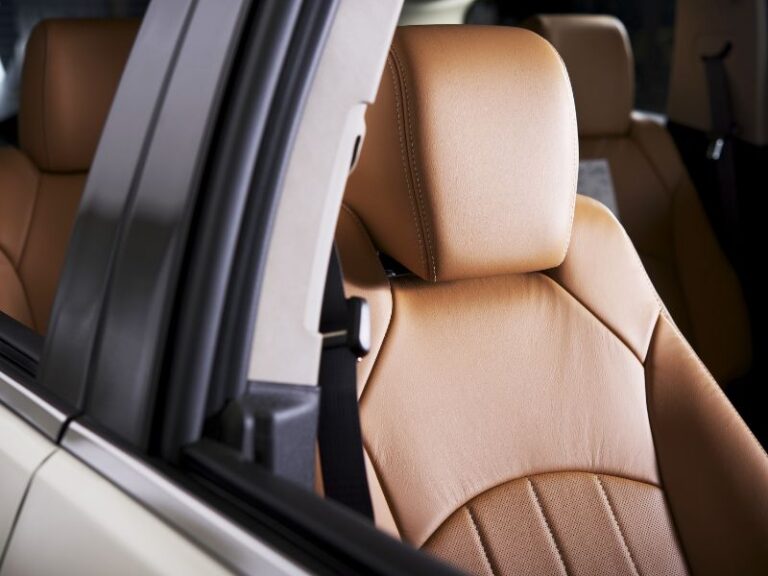The Hidden Disadvantages Of Tonneau Covers!
The disadvantages of a soft tonneau cover are limited security and potential wear and tear. A soft tonneau cover may not provide the same level of protection and security compared to a hard tonneau cover; it is easier to break into and may not withstand harsh weather conditions as well.
Additionally, over time, the material of a soft tonneau cover may become faded, torn, or damaged. Despite these drawbacks, soft tonneau covers are often more affordable and easier to install, making them a popular option for truck owners.
Durability Concerns And Longevity
Soft tonneau covers are vulnerable to various durability concerns, which can affect their longevity over time.
One of the major disadvantages of soft tonneau covers is their susceptibility to weather damage. They might provide limited protection against heavy rain, snow, or extreme temperatures.
Another drawback of soft tonneau covers is their tendency to fade and deteriorate over time. Constant exposure to sunlight and other environmental factors can cause them to lose their color and degrade in quality.
Due to the above durability issues, soft tonneau covers often require frequent replacement. This can be an additional expense for truck owners, especially if they need to replace the cover multiple times within a short period.
Security Flaws Exposed
Soft tonneau covers offer several advantages, such as convenience, affordability, and versatility. However, it is important to consider their disadvantages before making a purchase decision.
1. Security Flaws Exposed: Soft tonneau covers provide easy access for potential thieves compared to their hard counterparts. The fabric material can be easily cut or slashed, allowing unauthorized individuals to quickly and effortlessly gain entry to the truck bed.
2. Lack of Rigid Protection: Soft tonneau covers lack the rigid structure offered by hard covers, which may pose issues in terms of providing sufficient protection and security for valuable cargo. While they can deter casual theft, determined individuals can easily bypass the cover’s limited defenses.
3. Vulnerability to Sharp Objects: Soft tonneau covers are more vulnerable to damage from sharp objects such as branches or debris on the road. Even a minor tear or puncture can compromise the cover’s integrity, potentially exposing the truck bed to the elements or creating an avenue for theft.
Functionality Limitations
Soft tonneau covers, although popular for their aesthetics and ease of use, do come with certain disadvantages. One of the major functionality limitations is their restricted load-bearing capabilities. These covers are typically made from lightweight materials to facilitate easy installation and removal, which means they may not be able to handle heavy loads or provide the same level of protection as hard tonneau covers.
In addition, soft tonneau covers can present compromised access in extreme conditions. In situations where there is significant snow or ice accumulation, accessing the bed of the truck can become a challenge. The soft materials and folding mechanisms of these covers may not hold up well under such harsh conditions, making it difficult to open or close them.
Furthermore, the accumulation of snow and ice on the cover itself can cause additional problems. The weight of the snow or ice may put strain on the cover, potentially leading to tears or damage. It can also make it more cumbersome to remove the cover and access the truck bed.
Practical Complications
Soft tonneau covers come with a few practical complications that may pose disadvantages to truck owners. One common issue is increased maintenance requirements. The cover’s fabric material is susceptible to wear and tear over time, necessitating regular cleaning and maintenance to ensure its longevity.
Another concern is the potential for water leakage. Soft tonneau covers may not provide a watertight seal, leading to water seepage during heavy rain or car washes. This can be problematic if you frequently transport valuable cargo that could be damaged by water.
Additionally, compatibility challenges may arise with truck accessories. Soft tonneau covers can limit access to certain truck bed features or accessories like bed liners or toolboxes. It’s crucial to consider these factors when choosing a tonneau cover to ensure it aligns with your specific truck setup and requirements.
| Practical Complications | |
|---|---|
| Increased Maintenance Requirements | Soft tonneau covers require frequent cleaning and maintenance. |
| Water Leakage Issues | They may not provide a watertight seal, leading to water seepage. |
| Compatibility Challenges with Truck Accessories | They may limit access to certain truck bed accessories or features. |
Aesthetic Degradation Over Time
Soft tonneau covers come with their fair share of disadvantages that truck owners should be aware of. One such disadvantage is the aesthetic degradation that occurs over time. These covers are prone to sagging and looseness, which not only diminishes their functionality but also impacts the appearance of the truck. As the cover stretches and loses its elasticity, wrinkles and stretch marks may also start to appear, further affecting the overall look of the vehicle.
The once sleek and smooth cover can transform into a wrinkled mess, detracting from the truck’s aesthetics. This can be particularly frustrating for truck owners who take pride in the appearance of their vehicles. So, while soft tonneau covers offer convenience and protection, it’s important to consider the potential downsides they may bring to the table.
Hidden Costs Uncovered
Potential Resale Value Impact: Soft tonneau covers may have a negative impact on the resale value of your truck. Some buyers prefer hard tonneau covers due to their durability and security features. When it comes to selling your truck, a soft cover might not attract as many potential buyers, potentially leading to a lower resale price.
Added Expense of Frequent Repairs or Replacements: Soft tonneau covers are more prone to damage than their hard counterparts. They can tear or wear out over time, especially in harsh weather conditions. This could result in frequent repairs or even the need for a complete replacement. These additional expenses can add up, diminishing any short-term savings you might have enjoyed with a soft cover.
Installation And Removal Hurdles
The drawbacks of soft tonneau covers include installation and removal hurdles. One challenge is the complexity of secure installation, which can be time-consuming and require a certain level of expertise. Incorrect fitting may also occur, leading to potential risks such as leaks or security issues. The removal process can be time-consuming as well, especially if the cover is securely fastened.
It is important to carefully assess the installation instructions and take the necessary precautions to ensure a proper fit. Considering these disadvantages, individuals should weigh the benefits and drawbacks before deciding on a soft tonneau cover for their truck bed.
Limited Variety In Design
When considering soft tonneau covers, one of the main drawbacks is the limited variety in design. Due to standardization, these covers can often lack uniqueness and creativity, ultimately leading to a somewhat bland appearance. With fewer options for customization, truck owners may feel confined to a one-size-fits-all mentality, restricting their ability to express personal style and preferences.
For individuals who value individuality, the scarcity of customization options can be a significant downside. Soft tonneau covers often come in a limited range of colors, materials, and styles, which may not meet the diverse needs and tastes of truck owners.
| Drawbacks |
|---|
| Limited variety in design |
| Standardization leading to blandness |
| Scarcity of customization options |
| One-size-fits-all mentality |
Environmental And Health Considerations
Soft tonneau covers provide numerous advantages, but it is also essential to consider their disadvantages, specifically regarding environmental and health factors.
Disposal and recycling challenges pose a significant drawback for soft tonneau covers. Due to their composition of various materials, such as vinyl, aluminum, and plastic, finding suitable recycling options can be difficult. The disposal process may also contribute to waste accumulation in landfills.
Furthermore, potential hazardous material concerns arise with soft tonneau covers. Certain chemicals used in the manufacturing process, like phthalates and PVC, can have detrimental effects on human health and the environment. Exposure to these chemicals could potentially lead to respiratory issues and pollution.
Airflow restriction implications constitute another disadvantage. Soft tonneau covers create a barrier that can limit the airflow to the truck bed. This restriction could cause moisture accumulation and mildew growth, potentially damaging cargo and the truck bed itself.
Considering these environmental and health considerations, it is important to make an informed decision when choosing a tonneau cover for your truck.
Frequently Asked Questions On What Are The Disadvantages Of Soft Tonneau Cover?
Are Soft Tonneau Covers Easy To Install?
Yes, soft tonneau covers are generally easy to install. They usually come with all the necessary hardware and instructions for a straightforward installation process. With basic tools and a little bit of patience, most people can install a soft tonneau cover in their truck bed without any issues.
Can A Soft Tonneau Cover Protect My Cargo From The Elements?
Yes, a soft tonneau cover can provide some protection for your cargo against the elements. While it may not be as weatherproof as a hardcover, it can still help keep your items dry and protected from light rain and debris.
However, it is important to note that heavy rain or extreme weather conditions may pose some limitations to the level of protection.
Will A Soft Tonneau Cover Increase My Fuel Efficiency?
Installing a soft tonneau cover can potentially improve your fuel efficiency. By reducing the air drag and improving the aerodynamics of your truck bed, a soft tonneau cover can help reduce the fuel consumption caused by air resistance. However, the overall impact on fuel efficiency can vary depending on various factors such as driving habits, vehicle design, and other accessories.
Conclusion
To sum up, while soft tonneau covers offer several advantages such as affordability and easy installation, they do come with a few disadvantages. These include limited security and protection against harsh weather conditions, potential wear and tear over time, and difficulty in accessing the entire truck bed.
Therefore, it’s crucial for truck owners to carefully consider their needs and priorities before deciding on a tonneau cover that best suits their requirements.
- Can I Get in a Taxi Without a Car Seat? - January 26, 2025
- Can I Get Chlamydia From a Toilet Seat? - January 26, 2025
- Can I Get an Uber With a Car Seat? - January 26, 2025






